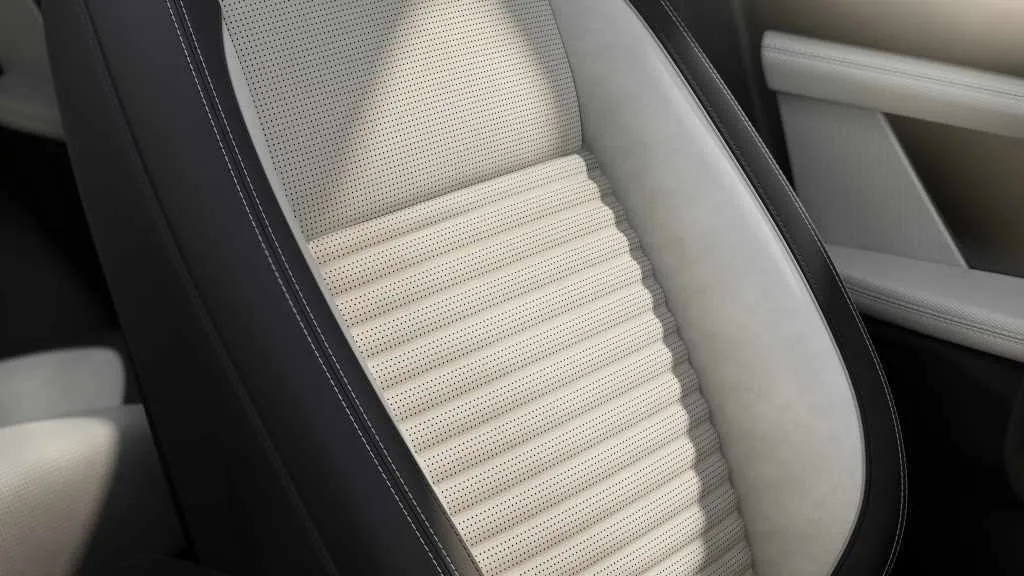Jaguar Land Rover (JLR) is taking steps to reduce the environmental impact of its future electric cars by using recycled content in seat foam.
In partnership with chemical company Dow and seat specialist Adient, JLR is working to recycle polyurethane seat foam, a challenging process that typically results in most of the material being sent to landfills. The automaker plans to begin testing recycled seat foam in pre-production vehicles later this year.
Recycled foam will be a key component of a “circular seat” made from materials that can be easily recycled. This initiative is expected to reduce carbon dioxide emissions by half compared to the production of current seats.

JLR tests recycled seat foam
JLR’s focus on reusing materials as part of the “circular economy” is evident in its dedicated research lab. Researchers have identified challenges in separating individual materials during the disassembly of cars, hindering effective reuse.
In addition to seats, JLR is exploring improvements in other areas such as front-bumper foam and aluminum body panels. The company is testing new formulations for easier recycling and collaborating with suppliers to reuse scraps from the manufacturing process.

JLR tests recycled seat foam
JLR is not alone in these sustainability efforts, with other automakers like Ford and BMW also incorporating recycled materials into their vehicles. The shift towards a circular economy is crucial for electric vehicles, as reducing emissions from production is key to lowering their carbon footprint.
JLR’s future plans include transitioning its Jaguar brand to all-electric vehicles, starting with a high-performance GT car inspired by the Type 00 concept. Electric Land Rover models are also in the pipeline, reflecting the company’s commitment to sustainable mobility.

